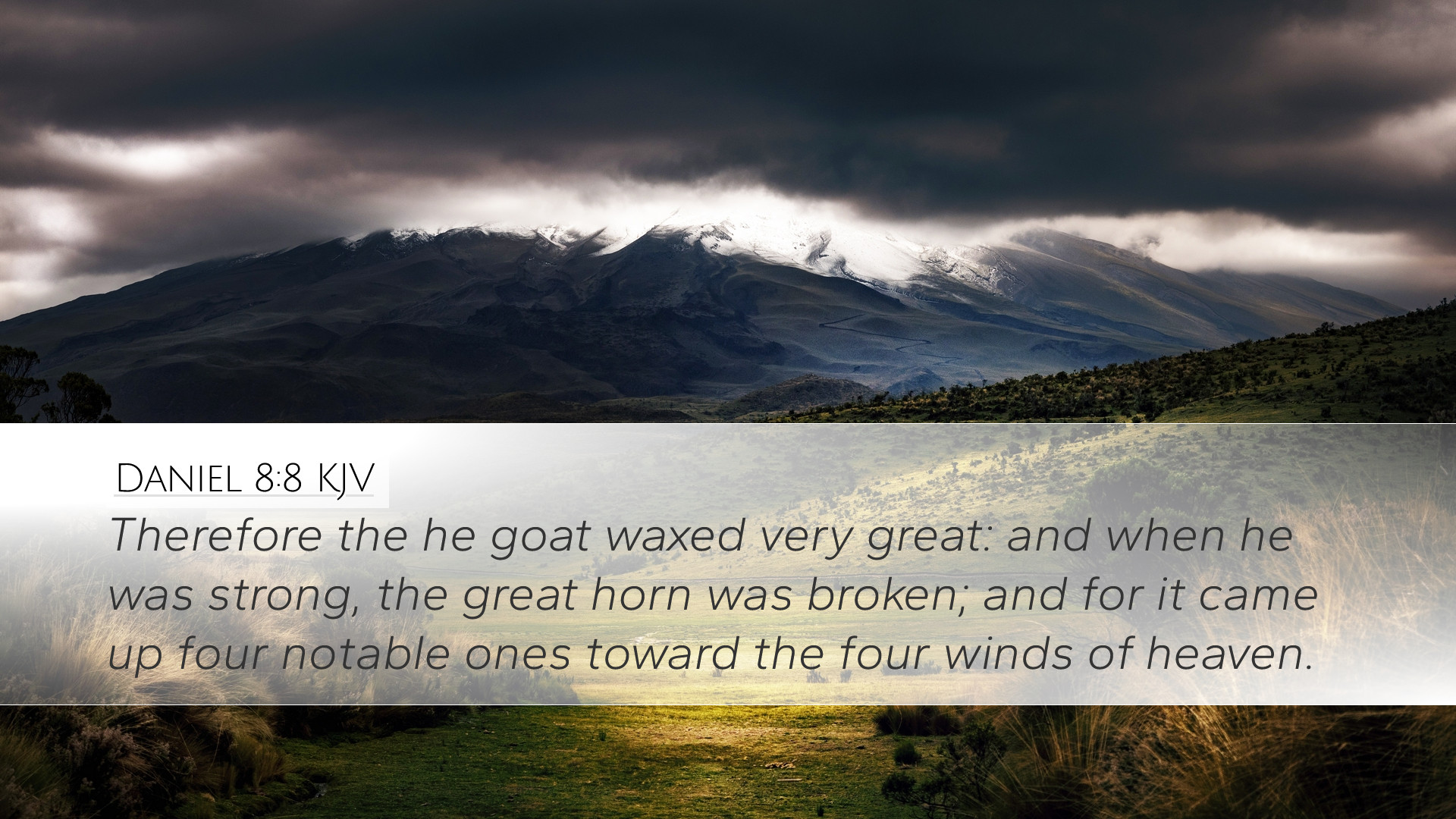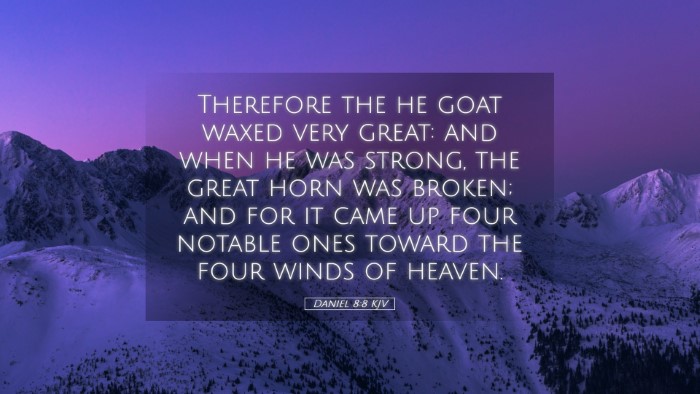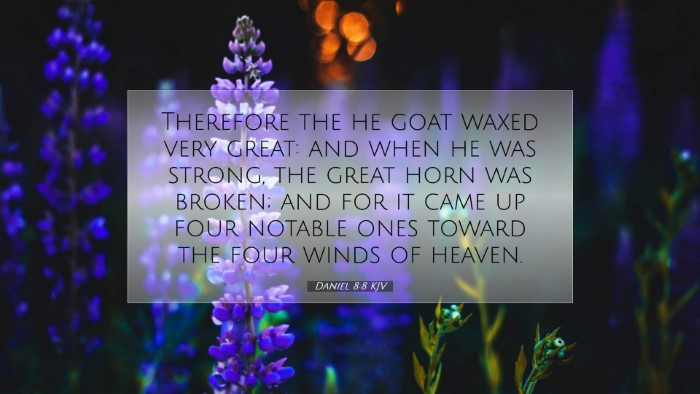Commentary on Daniel 8:8
Verse Text: "Therefore the he goat waxed very great: and when he was strong, the great horn was broken; and for it came up four notable ones toward the four winds of heaven."
Introduction to the Passage
The passage from Daniel 8:8 is a pivotal moment in apocalyptic literature, depicting the rise and fall of empires through symbolic imagery of animals. The "he goat" represents a fierce Greek empire under Alexander the Great, whose sudden rise to power is shortly followed by his demise and the fracturing of his kingdom.
Exegesis and Theological Insights
In unpacking this verse, we draw from various public domain commentaries, each offering profound insights into its implications for theology and biblical scholarship.
Symbolism of the He Goat
Matthew Henry elaborates on the symbolism of the "he goat." He describes it as an emblem of swiftness and aggression, emphasizing its capacity to overcome obstacles with remarkable speed. This correlates with the historical context of Alexander the Great, whose conquests spread across vast territories in a remarkably short time.
Great Horn and Its Brokenness
Albert Barnes notes the significance of the "great horn" as representing Alexander the Great himself, signifying his singular prowess. The "broken" nature of the horn indicates a sudden and unforeseen end to his rule. This imagery is echoed in Adam Clarke's commentary, which highlights the theme of impermanence in human power. Clarke points out that despite great achievements, human endeavors are subject to divine sovereign intervention.
The Four Notable Horns
Following the breaking of the great horn, four notable horns arise, symbolic of the division of Alexander's empire. Matthew Henry interprets these horns as the four kingdoms that succeeded Alexander's empire, suggesting that they reflect the historical reality of the Hellenistic world post-Alexander. The "four winds of heaven" serves to illustrate the far-reaching nature of these kingdoms, which spread across various directions of the known world.
Theological Implications
This verse holds significant theological implications regarding God's sovereignty and providence. Albert Barnes emphasizes that the account is not merely historical but a revelation of God's control over earthly kingdoms. The rise and fall of empires serve as a reminder of the transient nature of human power in contrast to God's eternal kingdom.
Historical Context
Understanding the historical context of Daniel and its prophecies is essential for interpreting this verse. Adam Clarke provides a comprehensive overview of the geopolitical landscape during Daniel's time. He discusses the impact of the Medo-Persian Empire and its eventual subjugation by the Greeks, illustrating the fulfillment of prophetic vision through the lens of recorded history.
Application for Contemporary Believers
The lessons from Daniel 8:8 extend beyond historical and theological insights. Matthew Henry draws practical applications, stressing the importance of faithfulness to God amid changing political landscapes. He urges believers to find solace in God's ultimate authority and purpose, even when confronted with instability in earthly kingdoms.
Encouragement and Warning
Moreover, this passage serves both as an encouragement and a warning. The rise of the goat illustrates boldness and ambition, while its destruction points to the reality of accountability in leadership. Albert Barnes reflects on the need for leaders to seek divine wisdom, reminding them of the weight of their responsibilities before God.
Conclusion
Daniel 8:8 encapsulates powerful themes of divine sovereignty, the transient nature of human power, and the unfolding of God's redemptive plan through history. As this verse continues to inspire pastors, students, theologians, and Bible scholars, it remains a crucial reminder of the importance of understanding prophetic scripture in light of both historical context and contemporary application.


